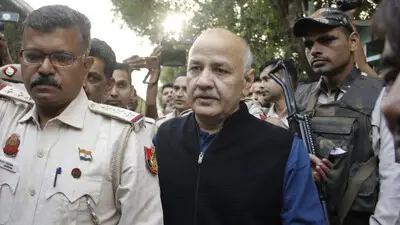Recommended Stories
"India is our fourth biggest export markets, a market worth nearly USD 16 billion to Australia, with enormous potential to grow as India becomes wealthier," Gillard said. "As India rises and brings hundreds of millions of people out of poverty it will need more energy," she further said. "We are a very big supplier of uranium. So having access to this new and growing market is good for Australian jobs," she said
Australia is the world`s third largest supplier of uranium, which contributed more than USD 750 million to the economy and created more than 4200 jobs. India was expected to increase its use of nuclear power from the current 3 per cent of electricity generation to 40 per cent by 2050.
Gillard said lifting the ban was another step forward in Australia`s relationship with India. It came at a time when Australia faced a unique set of opportunities in what she called the "Asian century". "India as a rising giant will be part of that strong economic growth," she said. "Put simply, our best possible partnership with India is also good for Australian jobs," Gillard hoped.
The Australian prime minister declared that it is "time for Labour to modernise our platform and enable us to strengthen our connection with dynamic, democratic India." Her remarks indicate a major shift in Australia`s policy with regard to uranium sale to a country which is not a signatory to the nuclear non-proliferation treaty (NPT).
She said India was in a class of its own, unlike Israel and Pakistan. The three countries have not signed the treaty. "As in other areas, broadening our markets will increase jobs. We must, of course, expect of India the same standards we do of all countries for uranium export - strict adherence to International Atomic Energy Agency arrangements and strong bilateral undertakings and transparency measures that will provide assurances our uranium will be used only for peaceful purposes," she said.
"One of our nearest neighbours is India. Long a close partner. The world`s biggest democracy. Growing at 8 per cent a year. Yet despite the links of language, heritage and democratic values, in one important regard we treat India differently. We will not sell India uranium for peaceful purposes - though Canada is preparing to - while policy allows us to export it to countries such as China, Japan and the United States," the Australian prime minister said.
"Just as I have said to the nation that we must analyse and understand the opportunities and challenges of this Asian century, the Labor Party too has to focus on our long-term economic goals and be prepared to confront difficult questions about maximising prosperity and the strength of our relationships in our region of the world," she said.
However, Labor`s Left faction has conceded it does not have the numbers to prevent a reversal of the party`s ban on uranium sales to India. But, Resources Minister Martin Ferguson, a strong supporter of the move, said that he expected the Labour conference to back Gillard.
Left faction convenor Doug Cameron said a reversal of the policy is a fait accompli because it has the backing of the powerful Right faction. Senator Cameron was, however, not convinced with Gillard. He said that it was his understanding that India did not have sufficient uranium to meet both its energy and military needs. "We`ll simply be exporting uranium to India and that will free up uranium within India for the military programme," he said.
The Australian Greens and conservation groups are of a similar mind. Greens leader Bob Brown warned that selling uranium to India would add to the "nuclear arms race". "This is a country that has intermediate-range missiles. It`s developing a plethora of nuclear submarines with nuclear weapons," he was quoted as saying by local media.
Defence Minister Stephen Smith defended the move saying the US supplied uranium to India under a bilateral deal signed in 2008. The Nuclear Suppliers Group, an alliance of nuclear supplier countries, also had approved the deal.
"This is a sensible thing to do," Smith said, adding that it was an important step that reflected India`s rising stature. Ferguson said that it was hypocritical for Australia to sell uranium to China and Russia but not India which is also one of the 10 largest economies in the world with huge purchasing power.












